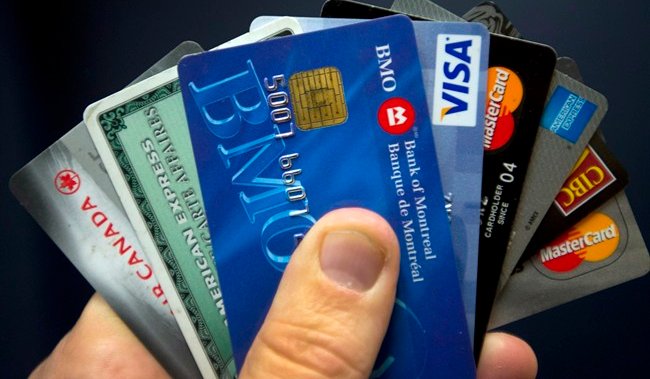Just over half of Canadians say they are $200 away or less from not being able to pay all of their bills at the end of the month amid higher interest rates and inflation.
Is really this bad? Half of Canadians? This is a catastrophe waiting to happen, wasn’t Canada supposed to be a rich country with a good standard of living, even in lower income areas?
Have you seen inflation and the profiteering going on in supermarkets nowadays? My grocery bills have gone up 30% despite switching to the cheapest supermarkets and cutting out all non essentials. It’s insane!
We live in a more geographically isolated part of Canada (ie: not a big city) and at this point, our monthly grocery bill is approaching our mortgage payment amount. I still have to drive to three different stores to buy basics, because they’re all frequently out of stock for common items (like milk, sometimes). It’s not uncommon to pick up 3-4 bags of groceries (no meat) and pay $150-$200.
We garden, and have birds, and even started raising dairy sheep to reduce costs, but it’s still too much.
Yet, there are seven cannabis stores in town, and they’re all well stocked, somehow.
Thats the lie we spread yeah. We have it much better than some, but in many areas it’s a lot worse than you think. Where I’m at our rental market has nearly double the average price for a 2 bedroom apartment in the span of like 2 years. Places that went for 800 and were in very rough underfunded neighborhoods now going for close to 2000. Our homeless population here has also been doubling every few months since the pandemic aid ended. In the winter its particularly bad and a lot of people have died from exposure or from accidentally starting fires.
Canadians by and large have been spending more than they earn for decades now. Check out the average debt-to-income ratio from even 20 years ago, I remember economists being worried and that making the news even back then. Real estate is what props up our GDP to provide the illusion that we’re a rich country, and no politician except maybe Singh will ever actually work to change that so home ownership becomes less burdensome and more accessible to everyday people, because it will have an impact on the GDP.
Homeownership is Canada is ridiculous, I was checking this thread on reddit about a guy with 100k in savings and a salary of 95k and he was still unable to afford a 500k condo.
Canada propping the economy through real-estate while people can’t afford it just seems like a time bomb, what will remain when it explodes?
wasn’t Canada supposed to be a rich country with a good standard of living, even in lower income areas?
It used to be, but nothing in life is static. To become a rich country you need innovation, and to remain a rich country you need to continue to innovate. Canada was once very innovative, changing the world in many ways, but in the last decade or two we’ve rested on our laurels.
That doesn’t mean consumerism can’t take hold and pressure people to make unnecessary purchases.
Nah, even people living within their means arent doing well. My partner and I have very good, stable jobs, with a combined household income of nearly~$100,000 after taxes and deductions (union dues, pension deductions, etc).
We drive a 12 year old car, we don’t take vacations, we don’t have kids, we don’t carry debt, and we don’t spend beyond our means.
Granted, we had the unmitigated audacity to rent a house instead of an apartment because I like to play music with my friends, so thats an extra $200 a month over the cheapest apartment we could find that we’re “wasting” on our comfort.
But factor in the rising cost of *gestures broadly* everyfuckingthing, we have been able to save less than 10% of just the down payment required to begin sniffing at houses in the last 3 years.
The system currently is broken and needs a major overhaul, so we can level the playing field and the middle class has a chance of existing again.
The only reason I could afford the 5% down payment for the place I just bought was because I lucked into buying a cheap foreclosure years ago and sharing the down payment and title with a roommate. When we sold last year the amount we made back in equity was enough to put towards a cheap little old house of my own while still holding on to some for long term savings.
Without that equity I would be stuck renting for the rest of my life.
We did the same - bought a foreclosure at auction about a decade ago at the max we could afford, about $325k.
Now it’s a $1.2 million property. We could subdivide and pay off our mortgage entirely, if we needed to.
The amount that we pay for groceries is fast approaching a third of our monthly budget. We’ve gone a few times in the past year eating instant noodles and plain rice for a week because of unexpected costs. And I make pretty decent money, and even with my partner’s income we have been just barely scraping by. A 2 bedroom apartment that doesn’t have laundry in it and is a falling apart minimum 80 year old building in a rough neighborhood should not cost 2000 a month. It’s unbelievable, but thats what rent costs are like throughout the area I live in.
so we can level the playing field and the middle class has a chance of existing again.
Does the middle class want to exist again? Let’s face it, a big part of why housing has become so expensive is because people don’t want to spend their money on starting businesses. Canadian culture in particular is very much “get a job, buy a home, live happily ever after”. But if all you have is a job, you’re always going to remain working class.
Personally, I’ve been trying to start my own business for about two years now. But that takes money that I don’t really have. My estimate right now is at best, I’ll be launching in about a year and a half. The products I design aren’t even all that expensive in terms of supplies, but when I’m using all my funds to cover my personal bills, restocking supplies to create more inventory isn’t even an option.
And that’s not even considering how businesses often actively work to suppress the earnings potential of low-wage and essential workers to ensure they stay where they are. For example, one employer I was at years ago (a certain national poutinerie chain) stole our tips the entire time I was there, registered individual corporate locations as separate businesses to avoid paying OT if you were scheduled across locations, and, most egregiously, would outright ask interviewees about their financial position- they wanted to hire people too desperate to quit. My current job regularly messes with people’s hours and bonuses so a stable level of income is a luxury, and the whole industry I’m in right now is like that so it’s not even like things will get better if I leave. If you’re self-funding your startup and you earn a low wage, you really don’t stand a chance. And BDC isn’t really all that helpful for anything other than advice, unless you already have the money you need to launch.
unless you already have the money you need to launch
I’ve noticed this as well, from being involved in the tech startup scene on the west coast for a while. There’s lots of funding and programs to expand your business, but none to help get it off the ground.
But that takes money that I don’t really have.
Then, frankly, housing was never in the cards for you either. You are not the demographic being talked about.
… excuse me? Because my wages are surpressed, I deserve to live in poverty and don’t deserve access to opportunities like home ownership or entrepreneurship and to work for social stratification and to live a good life, am I reading you right here?
am I reading you right here?
No. Not even close. Can you break down my comment to explain where you found applicability to anything you wrote? I am genuinely interested to see where I failed to effectively communicate.
people don’t want to spend their money on starting businesses
I’d love to. Unfortunately if I quit my day job we’ll lose the house in six months.
Unfortunately if I quit my day job
No need to quit. Middle class implies that you have both a day job and a business. Those who can ride on the proceeds of business alone are the upper class. While I am sure that is the dream, you have to start somewhere. It seems you are echoing that nobody wants to be middle class anymore.
And, really, I’m not sure middle class was ever much of an ideal. It was the outcome of us moving away from the time when most owned farms, with many of them starting to fail as we moved into the industrialization era, and their owners having to pick up jobs off the farm to stay afloat.
But if all you have is a job, you’re always going to remain working class.
… and why is that such a terrible thing? The world cannot be full of owners, someone has to actually do the work. Is it much more realistic for us to have a comfortable middle, working class than it is to have a bunch of wealth concentrated in business owners while the majority fight for crumbs.
… and why is that such a terrible thing?
What suggests it might be terrible? Especially when we are talking about how the middle class, not the working class, is the undesirable option. About how people prefer to be working class – and for good reason. Like I said in another comment,
I’m not sure middle class was ever much of an ideal. It was the outcome of us moving away from the time when most owned farms, with many of them starting to fail as we moved into the industrialization era, and their owners having to pick up jobs off the farm to stay afloat.
As I asked originally: Does the middle class want to exist again? I expect the answer is, for the most part, no.
What I hate is that on top of prices going up, stuff is getting smaller and cheaper quality.
I bought an Ikea shelve recently and compared it to the same model I bought 5 years ago, the wood is visibly thinner and the screws and stuff are now cheap plastic instead of metal.
Food is getting smaller portions, appliances break at nothing and must me changed more often… it is unsustainable.
Don’t forget you can cancel your Netflix subscription. /s
Remember, its not the broken system, its all the little joys that you try to inject into your miserable existence that is the issue.
all the little joys that you try to inject into your miserable existence
Related: opioid epidemics.
Not surprised in the slightest.
Most of my immediate neighbours own houses way outside their budget/payment capacity. As you said, add inflation and bigger monthly mortgage payments to the mix and it’s no surprise they can’t save 200$/month.
I say this more to keep in the back of your mind as a long term solution, not to fix your problems now. But if you’re able to advocate for better public transit in your area and urban planning more focused on walkability rather than car-centric, it will help everyone. Cities that are less car focused are better places to live in general. Plus it will open up the option to go from a 2 car household to 1, or even from 1 to none (less likely but possible in urban areas). A car is a huge expense when you add up all the direct and indirect costs. I would guess based on a few web searches that $1000/month per car is within the ballpark. For many, its a lot more. This means if you found a job that was within walking distance of your home that paid $5k less than your current job, you would still be making $7k more annually. This is a simplification but gives you an idea.
It seems like Canada is really splitting into haves and have-nots.
Household debt has been identified as a key risk for the economy by the Bank of Canada which is scheduled to make its next interest rate decision on Wednesday.
Then why the hell does the BoC continue to raise the gd interest rates ffs?
On a personal note I have an appt scheduled today with my bank to try and work out some kind of deal … the first step towards bankruptcy. :/
Because BoC’s mandate is to limit inflation. Affordability isn’t their problem.
Because BoC’s mandate is to limit inflation
And further to that, they have very few tools at their disposal - interest rates being the main (and most effective) one.
Then why the hell does the BoC continue to raise the gd interest rates ffs?
Largely because there is too much household debt (which helps drive inflation). Higher rates incentivizes people to take on less debt.







